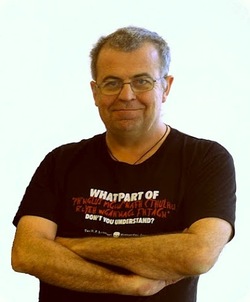
In this course I will motivate and introduce hybrid logic, a form of modal logic in which reference to worlds (or times, or epistemic states, or ordinary individuals, or...) is possible. The key idea traces back to work by Arthur Prior, the inventor of tense logic, from the 1960s, and (in the very last lecture) I will discuss some of Prior's concerns. But the main aim of the course is to progressively introduce the main components of hybrid logic, to see how they all fit together, and to learn how to work with them both semantically and proof theoretically.
This is a course in formal logic, and so I will be presupposing that participants have had some prior exposure to logic (propositional logic, first-order logic) and are comfortable with formal techniques such as inductive definitions. But I am aiming to make the course relatively self-contained. If you have encountered modal logic before, you should not have any difficulties with this course. But even if you haven't, I hope to make the main line of development accessible. The key ideas are remarkably straightforward, and I will try to present them in a way which makes this clear.
Basic logic and enthusiasm
Here are two papers, both of which provide reasonably accessible paths into hybrid logic:
Patrick Blackburn |
Email: patrickb (AT) ruc (DOT) dk
Homepage: http://www.patrickblackburn.org/
Bio:After taking my Bachelors degree in New Zealand (at the University of Waikato) I studied at Sussex University in England and then did my PhD at the University of Edinburgh in Scotland. By that stage my interest in logic (especially modal logic) and language (especially semantic and pragmatics) had gelled and I moved on to teaching and research positions in the Netherlands, Germany and France. My new home is the Philosophy Department at Roskilde University in Denmark. Logic (yes, still modal) and language (yes, still natural) remain my main interests, though epistemology and Philosophy of Mind are catching up fast.
|